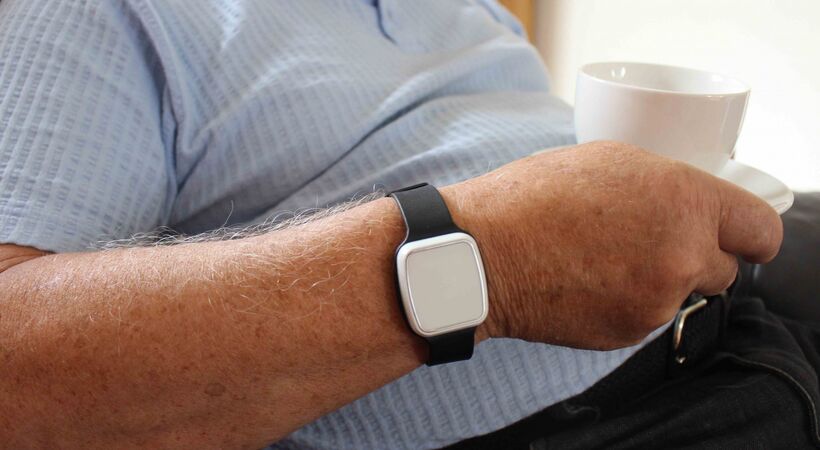14,000 prisoners over the age of 50 are predicted to be occupying prisons across the UK by 2020, many of which will have disabilities or health conditions that must be met as a requirement of the Care Act 2014.
Case study - HM Prison Wymott
Tunstall Healthcare worked with HM Prison Wymott near Leyland in Lancashire to implement telecare technology to effectively support prisoners with specific health and care needs. Working closely with Lancashire County Council and local social housing provider Progress Housing Group, Tunstall was able to install a number of products into the prison that eligible prisoners have access to, assisting them with their health needs.
The technology that was installed
A Lifeline Vi+ home unit was installed in a secure room of the relevant prison wing, which is connected to a dedicated telephone line that is monitored 24 hours a day, triggering an emergency response if necessary. Eligible prisoners are referred to the telecare service by social workers and are assisted by other telecare products such as bed occupancy sensors and Vibby wrist-worn fall detectors, depending on their specific needs.
Bed occupancy sensors will raise an alert if they detect a prisoner has left their bed for more than ten minutes during the hours of 8pm and 8am. The Vibby will raise an alert if it detects a heavy fall, and wearers can also press the button on the face of the Vibby if they require help. All alerts are received at Progress Housing Group’s Control Centre, where a trained operator will contact the Communications Room at the prison which is staffed 24 hours a day to let them know which sensor has triggered. This allows a prison staff member to check on the wellbeing of the prisoner.
Outcome and results
Since introducing the system in September 2017, six prisoners eligible to receive ongoing social care support at Wymott have had their needs met safely and in a cost effective way thanks to telecare. Critical health events such as seizures, falls or cardiac arrests can be managed quickly by staff who are alerted via the system. Within a few days of the system being installed at Wymott, staff were alerted to a prisoner suffering a major stroke, something they would have previously been unaware of. The appropriate medical assistance was summoned and the prisoner was quickly attended to.
Telecare also enables significant cost savings, as prior to its installation, three waking watch carers were employed each day between 8pm and 8am. Six bed occupancy sensors and six Vibby fall detectors have been supplied to the prison and can be used for any prisoner referred to the service. This gives the prison flexibility as the equipment is easily transferrable between prisoners as needs change.
Gavin Bashar, UK managing director of Tunstall Healthcare commented, “Telecare is an innovative and cost effective means of managing risks 24 hours a day, supporting the independence of prisoners and helping to improve their quality of life.
“This helps Lancashire County Council to fulfil its obligations under the Care Act, and means that complex health needs of some prisoners are met both safely and cost-effectively.”
Mick Butler, Custodial Manager at HMP Wymott, added, “We are looking after older men, and men who are at risk of falling or other incidents which require a quick response. Having the Tunstall telecare system means we’re alerted if an event occurs, and helps us to ensure prisoners’ safety and wellbeing without the need for intensive monitoring by staff. The system has been very successful to date and I would heartily support its introduction in other prisons.”



